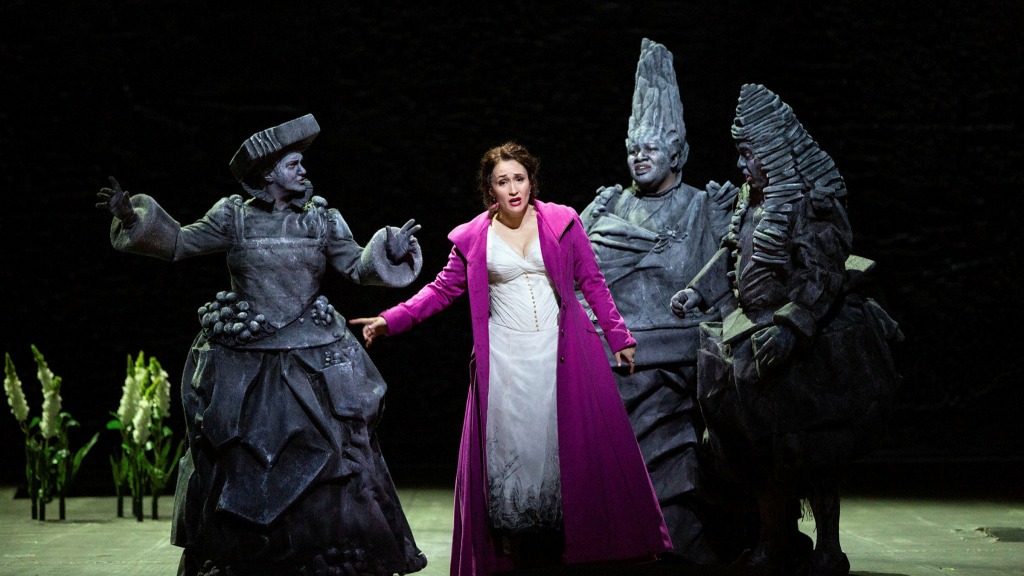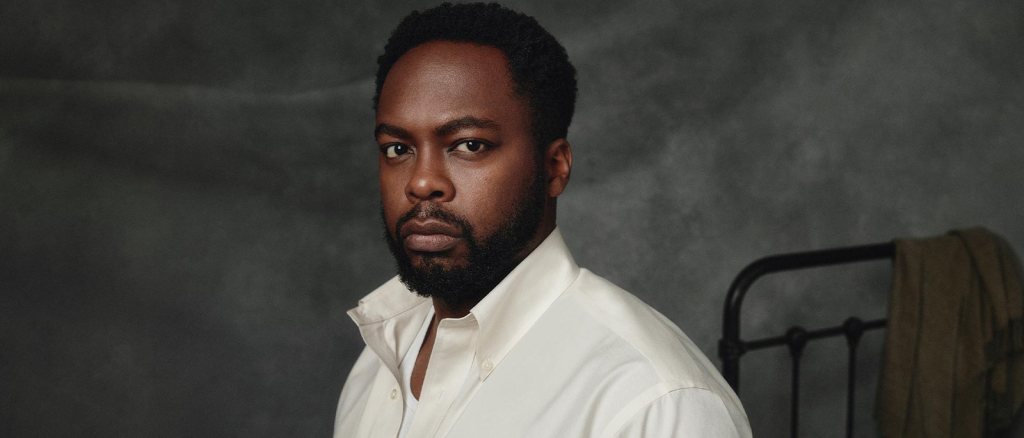
The Metropolitan Opera has finally turned a new leaf. This season the Met is featuring not one but three contemporary operas: “Fire Shut Up in My Bones,” Eurydice” and “Hamlet.” Fortunately Music Director Yannick Nézet-Séguin, unlike his predecessor James Levine, champions new music, so we can look forward to more of the same in seasons to come.
Last Saturday I attended a performance of “Eurydice,” with music by Matthew Aucoin and libretto by Sarah Ruhl based on her play of the same title. While there have been many retellings of the Orpheus myth in literature, drama, opera and ballet, this work has a special slant—we view the story through Eurydice’s eyes, and her tie to the Underworld ultimately proves stronger than that to her husband. Although I have some reservations about the music, there’s no doubt this opera benefits greatly from an excellent production directed by Mary Zimmerman, and above all, a superlative cast of singers headed by Erin Morley in the title role, Joshua Hopkins as Orpheus, Jakob Józef Orlinski as his double, Nathan Berg as Eurydice’s father and Barry Banks as a marvelously malevolent Hades.
One problem is apparent from the outset—Aucoin employs a large orchestra which results in a very dense sound at times. The unfortunate result is too much bombast in the first few scenes to the extent that key elements are lost in the house. It’s difficult to hear Erin Morley when she’s not above the staff, and the wonderful effect of having the countertenor sound of Orpheus’s double surround the baritone vocal lines is inaudible (It was only when I attended the encore presentation of the HD telecast that I was able to hear these singers in full during the beginning of the opera). While there are some interesting arias and set pieces along the way, especially the wedding dance and Eurydice’s scenes with Hades, it isn’t until the third act that music and libretto coalesce. The orchestration is more transparent, the music becomes more lyrical, we finally hear Orpheus’s song, Eurydice’s father says farewell to memory and most heartbreakingly, Eurydice writes a letter to Orpheus with advice to his next wife in the most touching aria of the opera. I would have liked more of this contemplative style earlier in the work.

A world away from “Eurydice” (literally), Terrence Blanchard’s “Fire Shut Up in My Bones,” which opened the Met’s current season. has received much critical acclaim and rightly so. With a libretto by Kasi Lemmons based on Charles Blow’s memoir of the same title, the work is a cohesive whole, gaining in strength throughout and culminating in an absolutely perfect third act. Along the way there’s so much to admire: the embodiment of Loneliness singing with a blues-y tinge (nothing beats a good musical pun); the gorgeous ballet music that opens the second act; yes, the show-stopping step dance routine that opens the third act; the lyrical love duet of Charles and Greta, his college girlfriend; and the culmination of Charles’s journey with the line “Mama, I’ve got something to tell you,” as he finally opens up about the molestation he suffered at the age of seven by his cousin. As with “Eurydice,” Yannick Nézet-Séguin led the opera, and the singers, Will Liverman (Charles), Walter Russell III (Char’es-Baby), Angel Blue (Destiny,/Loneliness/Greta) and Latonia Moore (Charles’s mother, Billie) could not have been better (I would gladly listen to Ms. Moore sing the phone book, but I’d much rather hear her in “Il Trovatore.” Peter Gelb, you listening?)
Brett Dean’s “Hamlet” is still to come, and we can look forward to the presentation of another Terence Blanchard opera, “Champion,” during the next Met season. The good news is that audiences are responding—several performances of “Fire Shut Up in My Bones” sold out, including the one I attended, and more opera goers were in the house for “Eurydice” than at the performance of “Boris Godunov” I saw in October. Let’s hope the interest continues.

